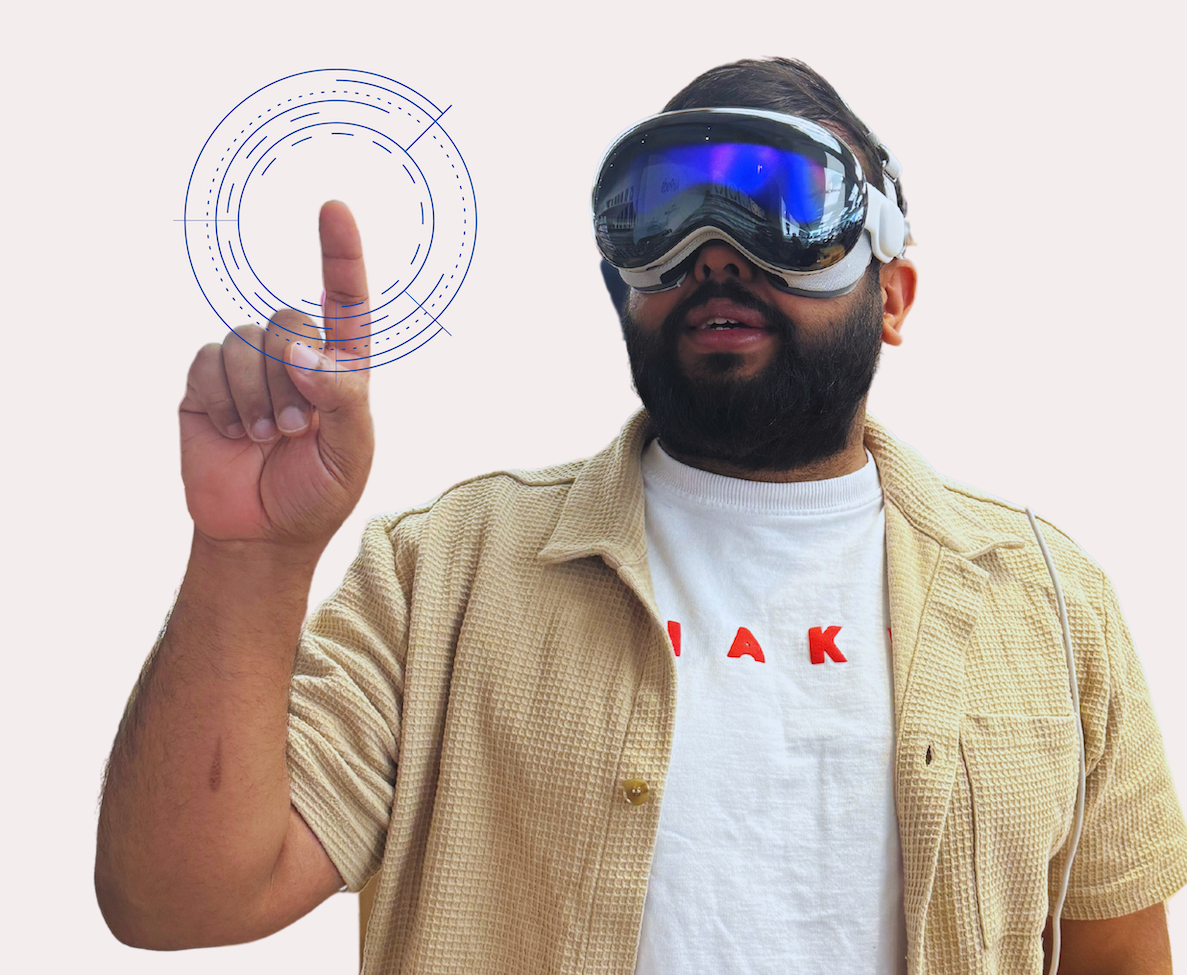
Agrim Prakash (Strategy, 2025)
When I came into this world, the World Wide Web was just 3 years old, the personal computer was a teenager, and Wikipedia didn’t even exist—you had to look things up alphabetically in physical books called encyclopedias. Thirty-some odd years later, we can carry terabytes of information from the world’s most remote corners on a wristwatch. I grew up witnessing the dawn of the digital age, and my generation was instrumental in shaping this new world, exploring its possibilities and adapting to its rapid evolution. While change of this magnitude may induce fear and anxiety in most, my generation sees hope and opportunity.
But no amount of technological shifts or digital revolutions could have prepared us for November 30, 2022, when ChatGPT was introduced to the world. It marked a seismic shift in our lives. When I began my application to the Brandcenter in January 2023, generative AI was just two months old. The industry was already abuzz with whispers of AI’s potential to revolutionize our jobs and reshape our future, but nobody really knew where things were going with this new and exciting technology.
At the time, I was doing my post-graduation in Toronto, where a few enterprising students were mostly using this new mega-tool to plagiarize their assignments, hack their essays, draft emails, and create captions for their Facebook posts. It was also around this time that I visited 103 S. Jefferson Street in Richmond to observe a small cohort of strategists during their Visual Storytelling course at the Brandcenter. In this class, students were given a unique assignment: create a 60- to 90-second video using AI-generated scripts and visuals, then re-create the same video using their own creative skills. This project aimed to compare the strengths and weaknesses of AI versus human creativity.
What struck me most about this experience was not the novelty of the assignment or the technology used. The hypothesis that AI could potentially rival human creativity was an idea that haunted me for days to come. In later conversations with staff, as a prospective student, I came to understand and appreciate the “software agnostic” approach that the school took. The focus was never on mastering the latest tech tool but on being adaptable and ready to harness any technology to tell compelling stories.
During my time at Brandcenter, I have had the opportunity to delve deeper into understanding AI’s evolving role in creative fields. My experiences at Brandcenter have provided me with a grounded perspective on Artificial Intelligence & Large Language Models. Rather than being intimidated by the advancements, I found myself increasingly intrigued by the possibilities they offered. Through collaborative projects and discussions with like-minded peers and mentors, I began to see how AI could augment our creative processes rather than replace them entirely.
This realization encouraged me to further explore and integrate AI into my work, aiming not just to adapt to technological shifts but to leverage them to elevate storytelling and communication. This is how our team of first-year students built DadGPT – an award-winning app prototype for Home Depot, that acts as a virtual father figure who can provide guidance, support and advice for a wide range of home repair tasks.
Over the past year, my experiences at the Brandcenter have solidified a crucial insight for me: “AI won’t take your job. But somebody using AI might.” The Brandcenter’s forward-thinking approach taught me that mastering AI is not just about keeping pace with technology—it’s about staying ahead of it, ready to innovate and lead in a world where creativity and technology converge.
TL;DR version: I’m training AI to be my sidekick today so that I don’t become its side project tomorrow.